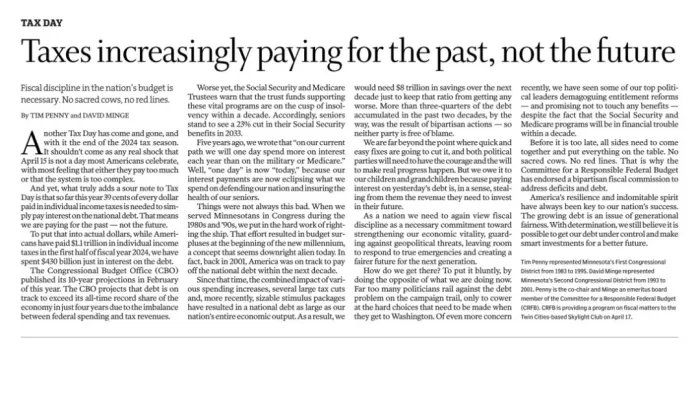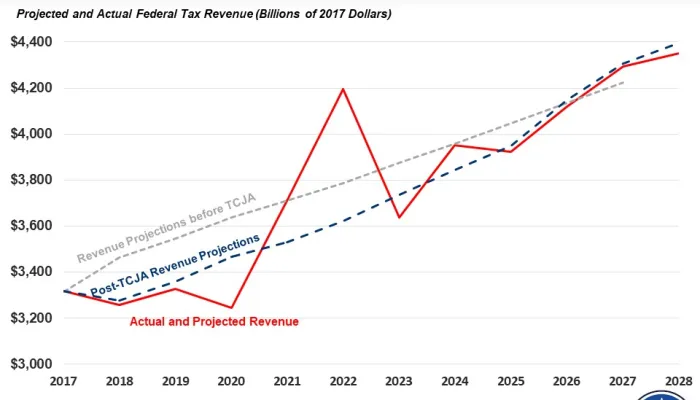JCT Score Shows Tax Bill Would Cost $1 Trillion After Economic Growth
For Immediate Release
The Joint Committee on Taxation (JCT) released its dynamic score of the Senate Finance Committee-passed Tax Cuts and Jobs Act, which takes into account the effects of economic growth created by the legislation. JCT estimates that the bill would modestly increase the size of the economy by an average of 0.8 percent over the decade, which suggests an increase in the average annual growth rate of less than 0.08 percentage points per year. The following is a statement from Maya MacGuineas, president of the Committee for a Responsible Federal Budget:
This score confirms what we have been warning for months: these tax cuts will add to the debt even after accounting for economic growth.
Contrary to claims that the $1.4 trillion cost of tax reform would disappear under dynamic scoring, today’s estimate finds only three-tenths of the tax cut would be paid for.
And contrary to claims that tax reform will increase the average growth rate by 0.4 percentage points or bring us to 3 percent sustained growth, today’s estimate projects the Senate bill will only increase the average growth rate by less than 0.08 percentage points over the next decade – to roughly 1.9 percent per year.
JCT’s findings are not surprising: no serious economist or model so far says that tax cuts pay for themselves.
JCT’s estimate shows the tax bill would still cost $1 trillion on a dynamic basis, similar to many outside estimates of the current House and Senate bills, which have found they will cost over $1 trillion. And no estimate that accounts for the economic impact of debt has concluded these bills could increase the growth rate by more than 0.1 percentage points per year on a sustained basis.
We desperately need pro-growth tax reform. Economic growth going forward will be significantly lower than it has been in the past mostly due to very large demographic shifts with the aging of the population. We should adopt a slate of policies to help increase growth, and tax reform is at the top of that list. But reform requires tough choices to ensure the plan doesn’t grow the debt instead of the economy. There is still plenty of time to make changes to the tax plan to create a fiscally responsible, pro-growth package, but if our leaders do not reverse course and continue to put their hope in wild growth predictions, they will likely leave a legacy of debt for our children with little or no economic improvement to show for it.
###
For more information contact Patrick Newton, press secretary, at newton@crfb.org.


